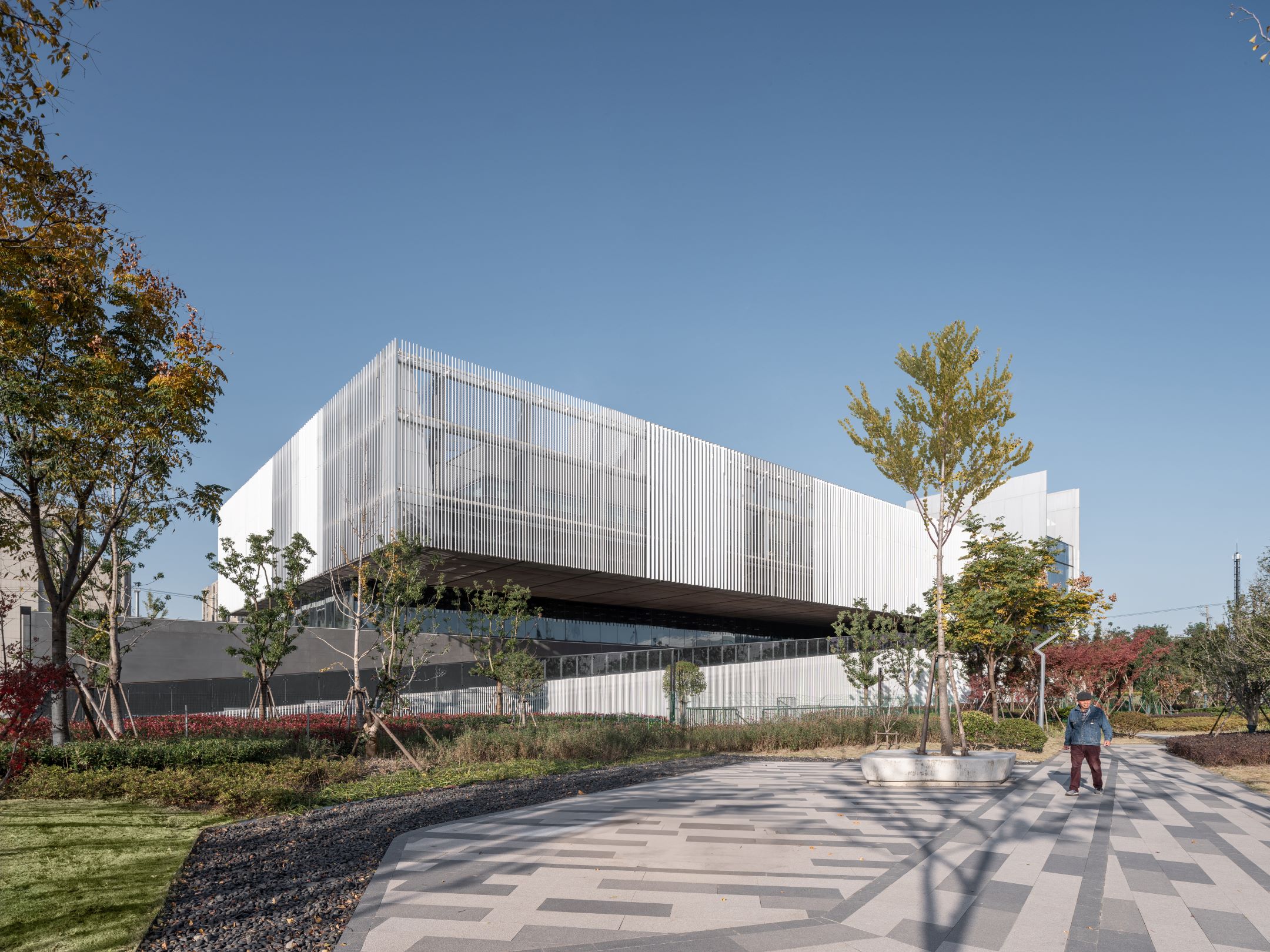
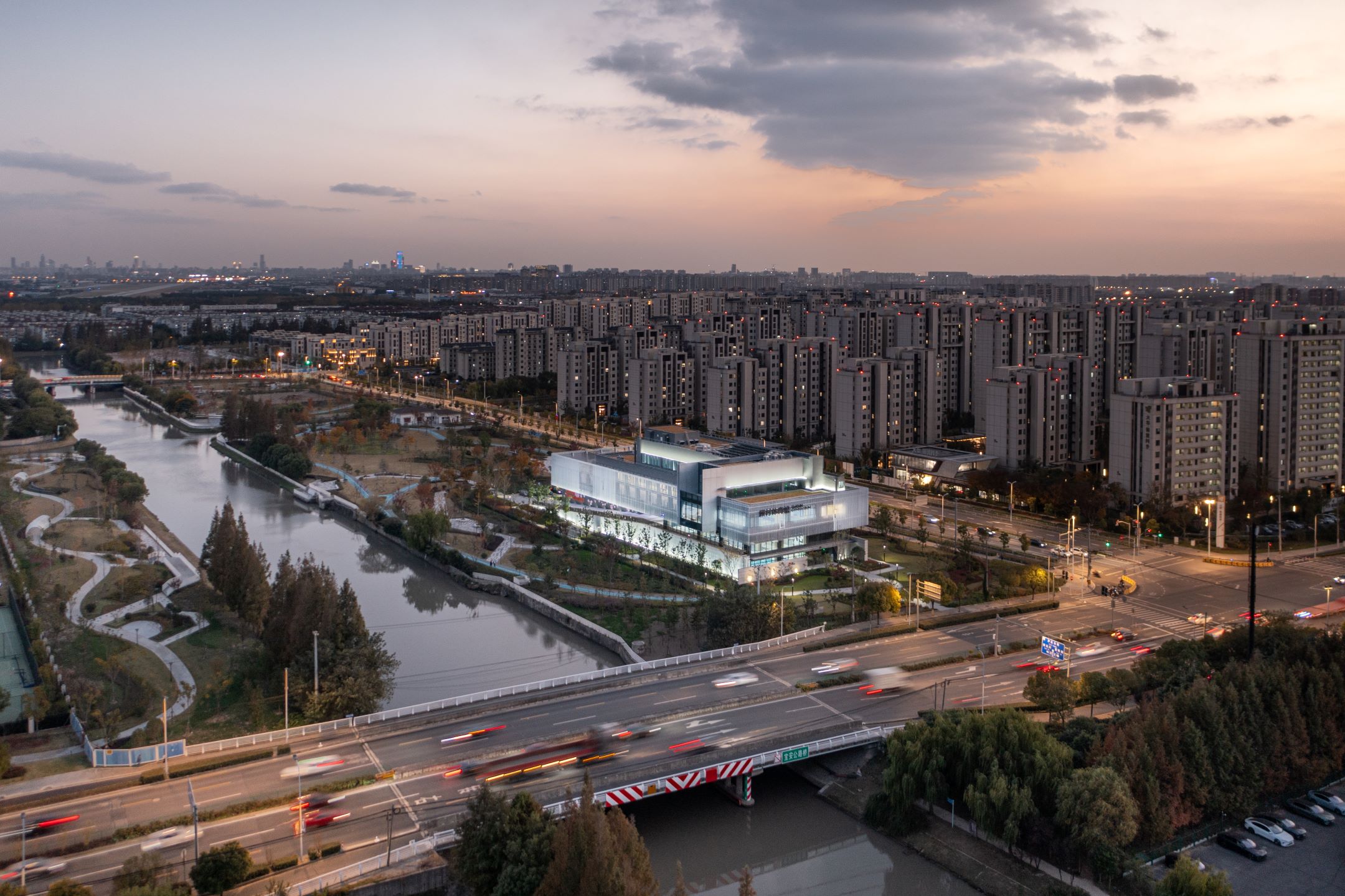
设计单位 上海日清建筑设计有限公司
项目地点 中国上海
建成时间 2023年8月
建筑面积 7000平方米
本文文字由上海日清建筑设计有限公司提供。
在重视全民健身的后疫情时代的当下,常规封闭式的内向型体育场馆已经不具备吸引力。当下的体育场馆在承担相应的运动功能外,更应成为城市空间的链接点,公共生活的纽带,串联起市民的日常生活。
In the post-pandemic era, where public fitness is highly valued, conventional enclosed sports facilities no longer hold much appeal. Modern sports centers should not only fulfill their athletic functions but also serve as urban connection points and public life hubs, integrating seamlessly into the daily lives of citizens.
顾村体育馆位于上海宝山区潘泾河与宝安公路交叉的运动公园内,历史上曾经作为宝山工业区的重要组成部分,场地内河边亦保有数处工业龙门架遗迹。而随着城市化的进程,工业生产已慢慢远离此区域,老的河边厂房与工业码头也被更新为市民体育休闲公园。
Gucun Sports Center is located within a sports park at the intersection of Panjing River and Bao’an Highway in Baoshan District, Shanghai. Historically, it was an integral part of the Baoshan Industrial Zone, and several industrial gantry crane remnants remain by the river. As urbanization progressed, industrial activities gradually moved away from this area, transforming the old riverside factories and industrial docks into a recreational sports park for citizens.
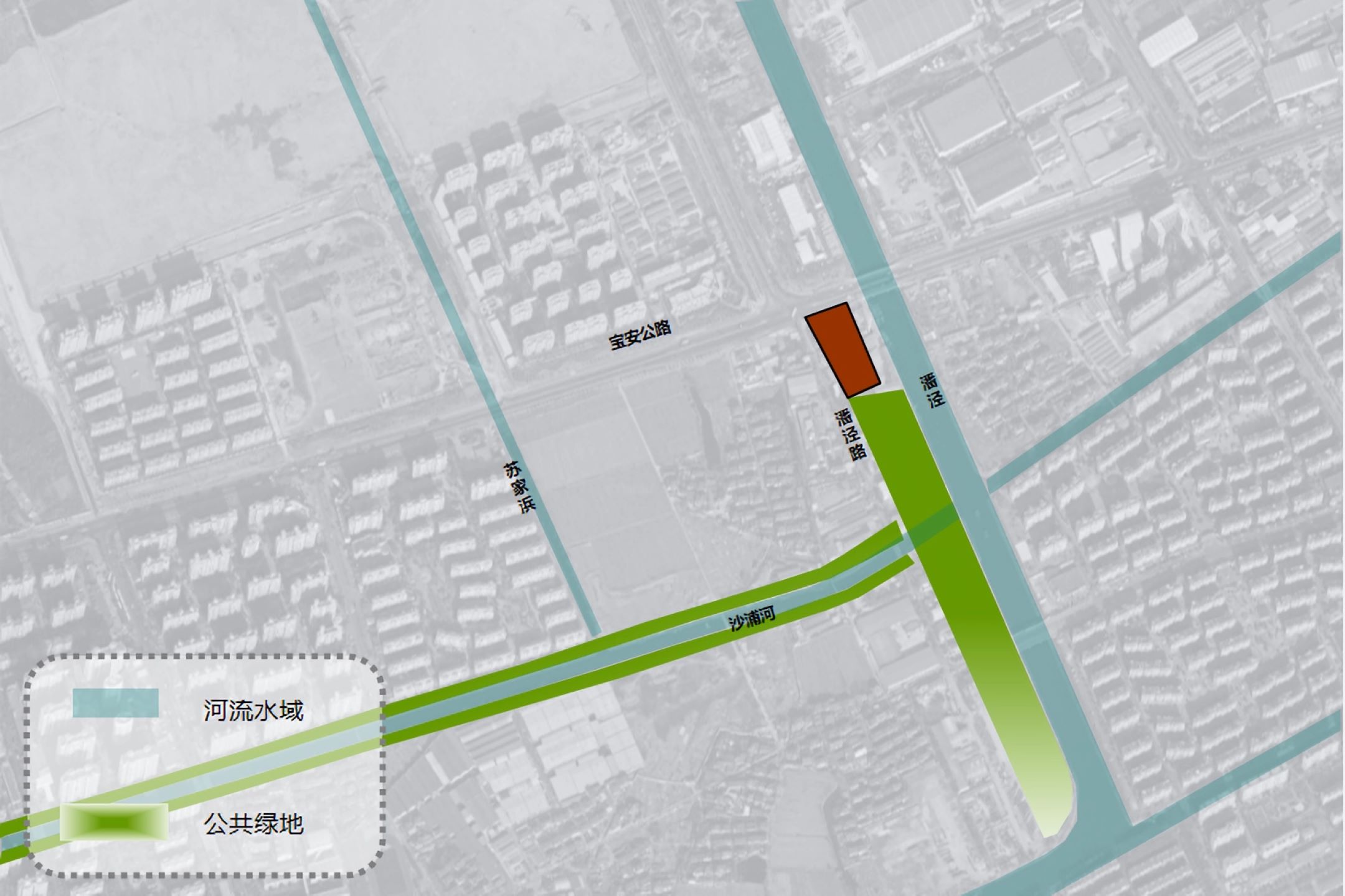

在重视全民健身运动的后疫情时代的当下,传统的封闭式体育馆已经不具备吸引力,我们尝试建立一种能够容纳各类室内外运动的空间系统,突破空间的边界与运营时间管理的边界,让体育馆真正成为区域的活力中心与运动服务中心。
In the current era, the traditional enclosed sports center is no longer attractive. Designers sought to create a space system accommodating various indoor and outdoor sports, breaking both spatial and operational time boundaries. The goal was to make the sports center a genuine hub of vitality and sports services for the region.
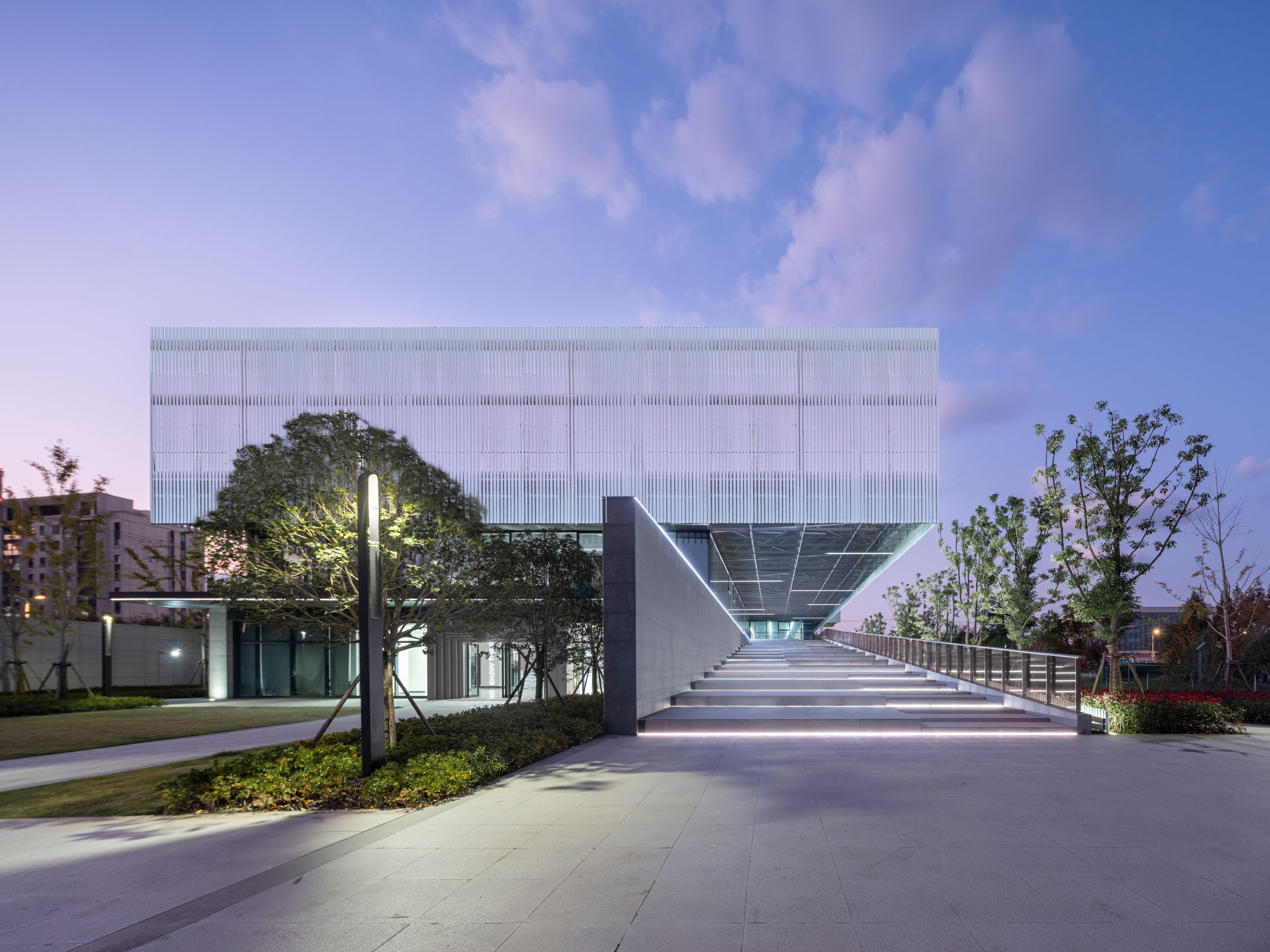
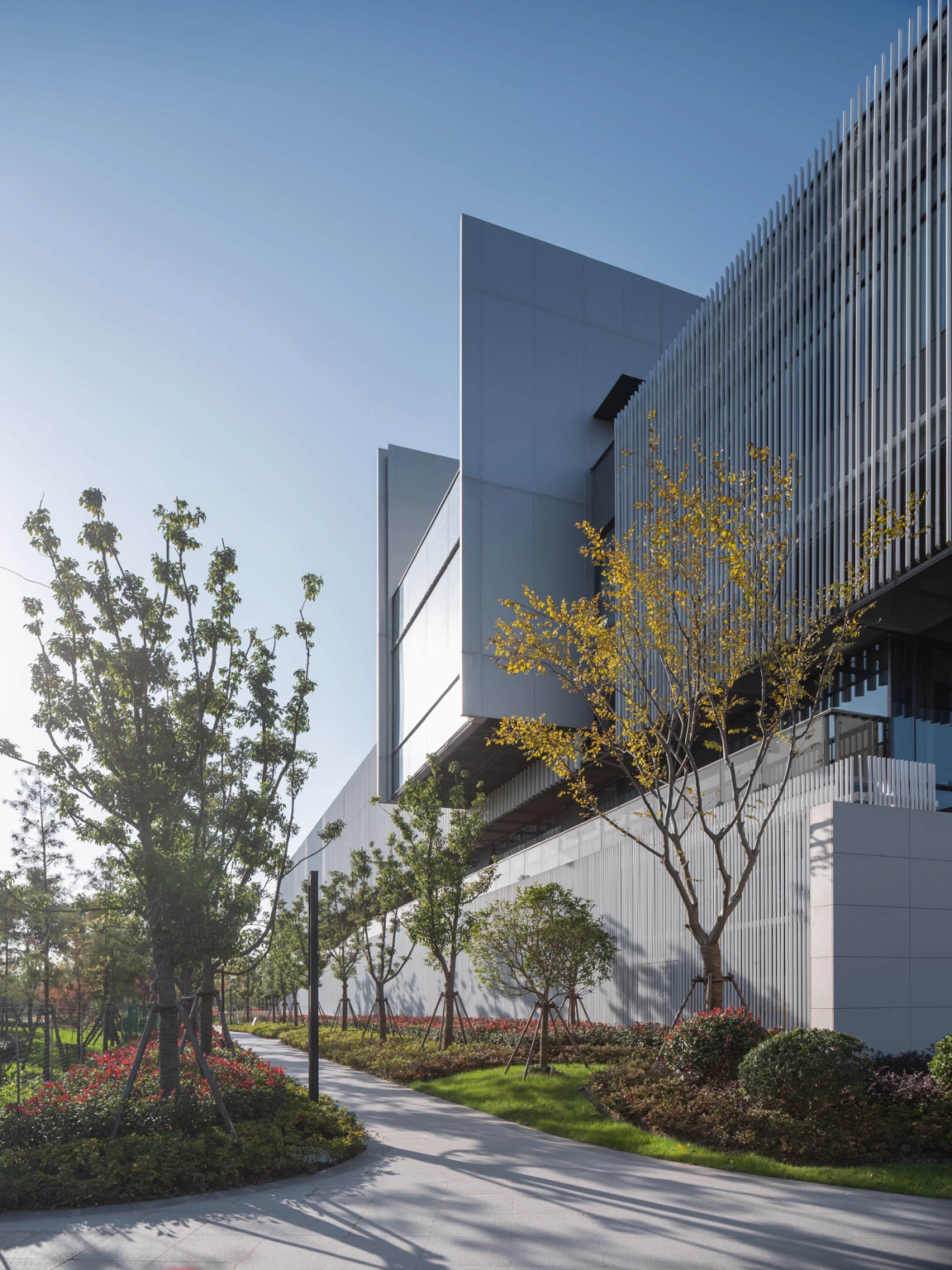
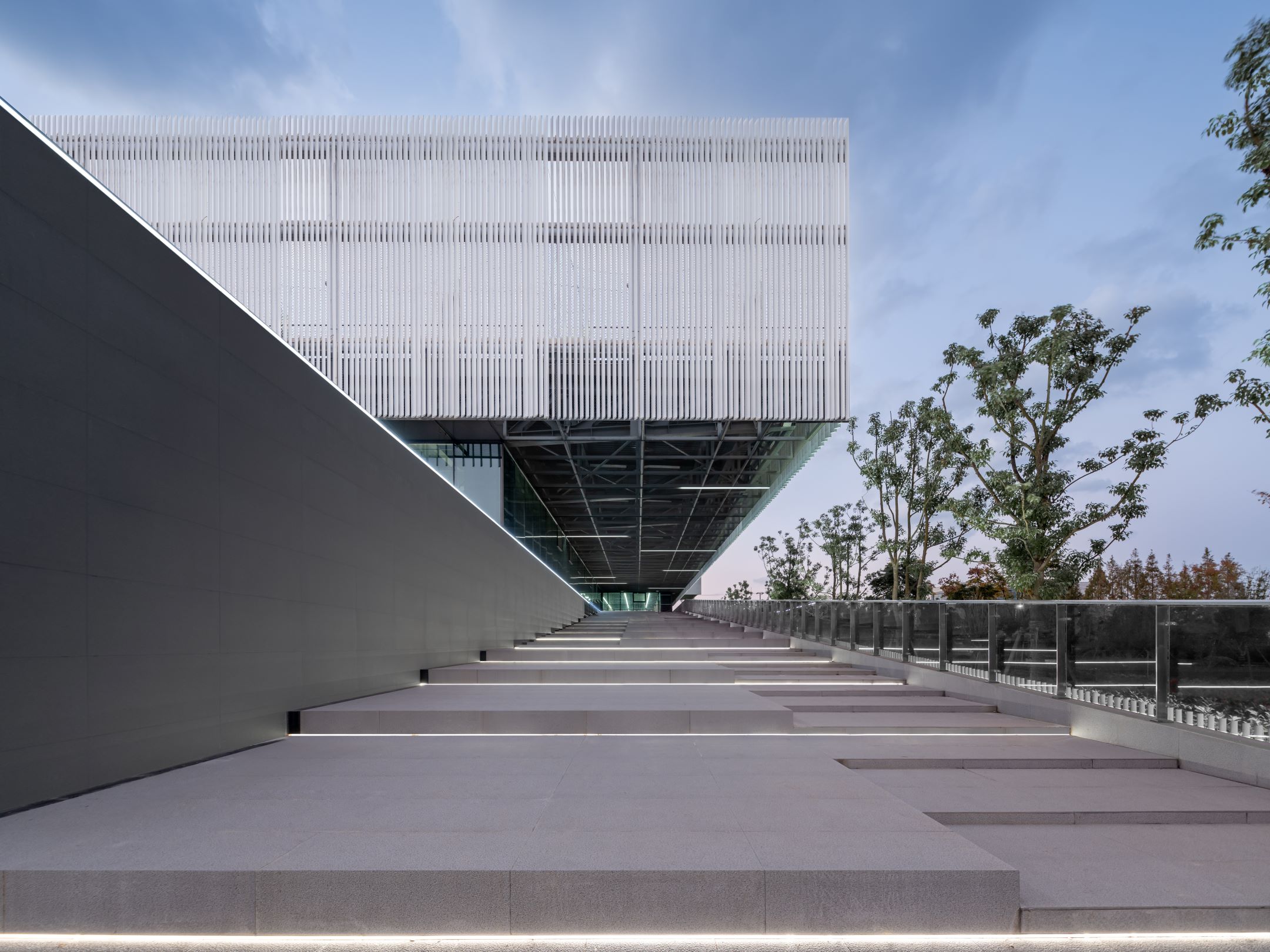
为消解巨大的建筑体量,以及将体育公园的活力与建筑交融,将人群更加顺畅地引入建筑,我们尝试在传统的建筑体量中引入一条抽象化的“登山步道”,通过多级大型观演台阶、坡道、吊桥以及平台,为建筑引入一条不受时间限制的室外登山步道,串联起体育馆首层的攀岩馆、游泳馆,以及二层的羽毛球馆、健身馆。而二层的空中“山巅露台”,更是24小时开放,通过立体“登山步道”的引导,成为公园的公共观景台。
To mitigate the massive building volume and blend the park's vitality with the architecture, designers introduced an abstract "mountain trail" within the traditional building structure. This trail, featuring multi-level large spectator steps, ramps, suspension bridges, and platforms, creates an outdoor path unrestricted by time. It connects the ground-floor climbing and swimming areas with the second-floor badminton and fitness centers. The second-floor "mountaintop terrace" is open 24/7, serving as a public viewing platform in the park, guided by the multi-level "mountain trail."
这些不同层级的立体建筑外部空间组织成为开放性的跑步路线,与公园的跑步步道串联,一同组成了一个综合性的开放性的体育空间体系,打破封闭场馆的使用管理局限。
These variously leveled external spaces form an open running route that connects with the park's jogging paths, creating a comprehensive, open sports space system that overcomes the limitations of a closed venue.
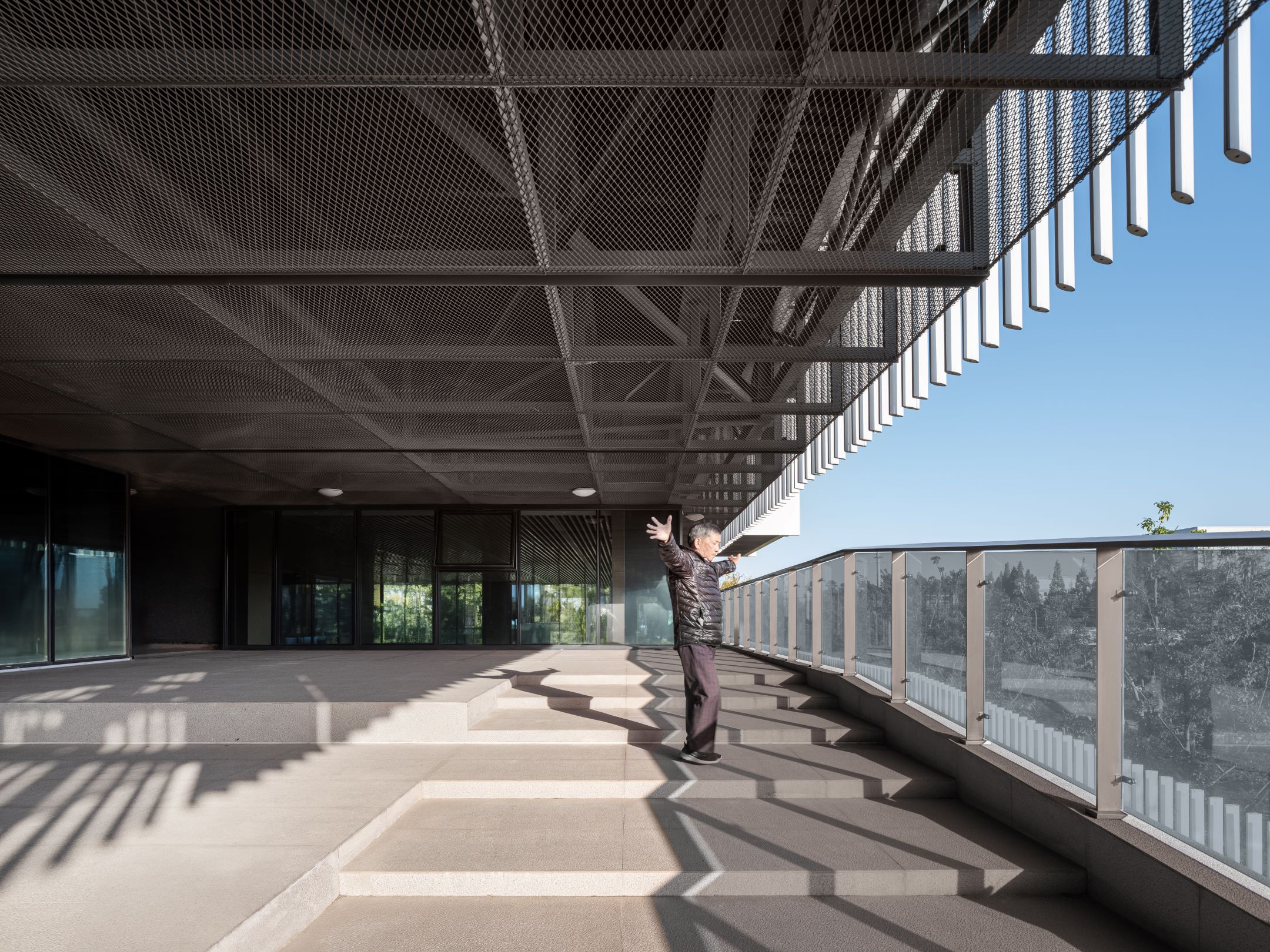
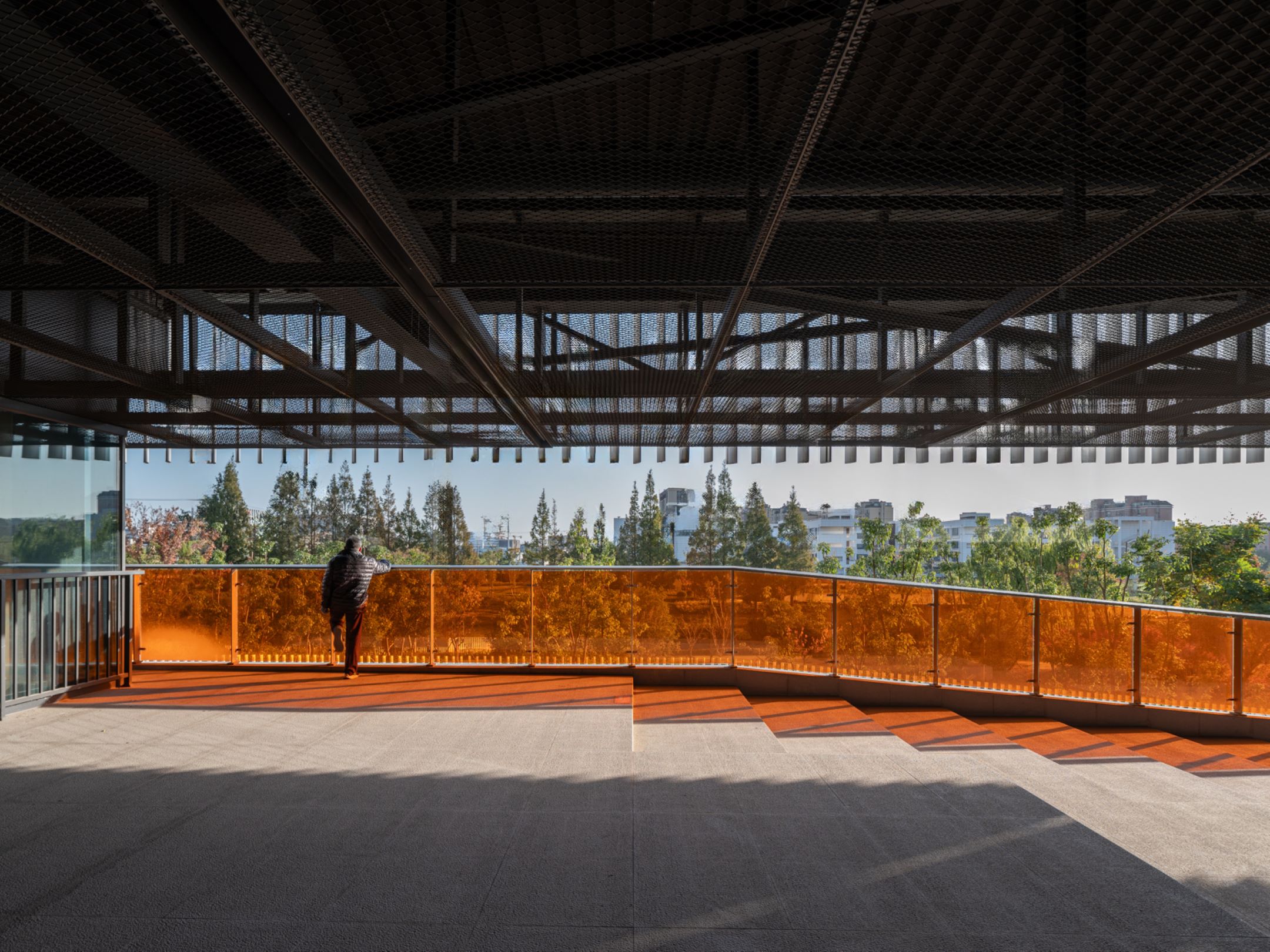
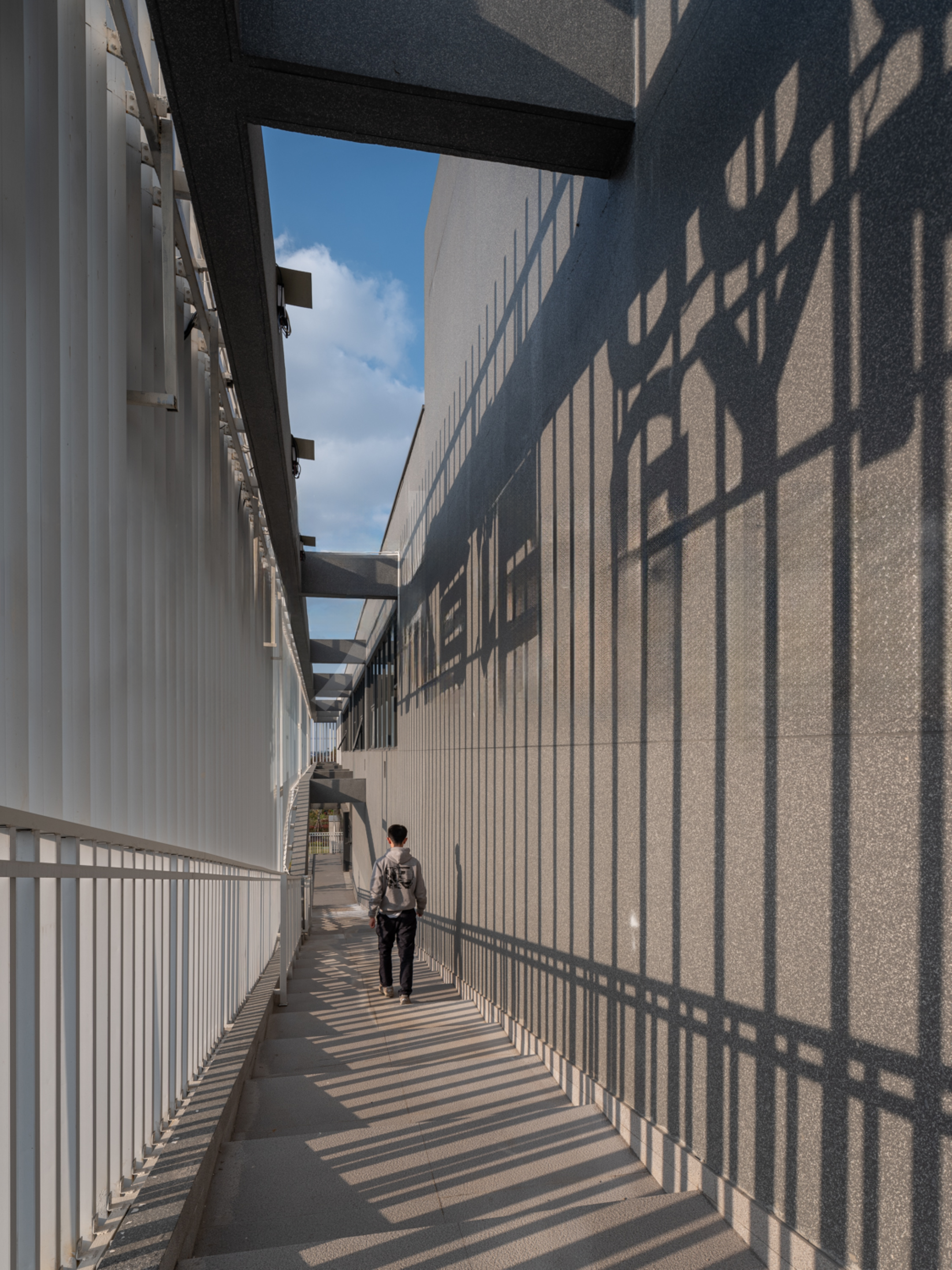
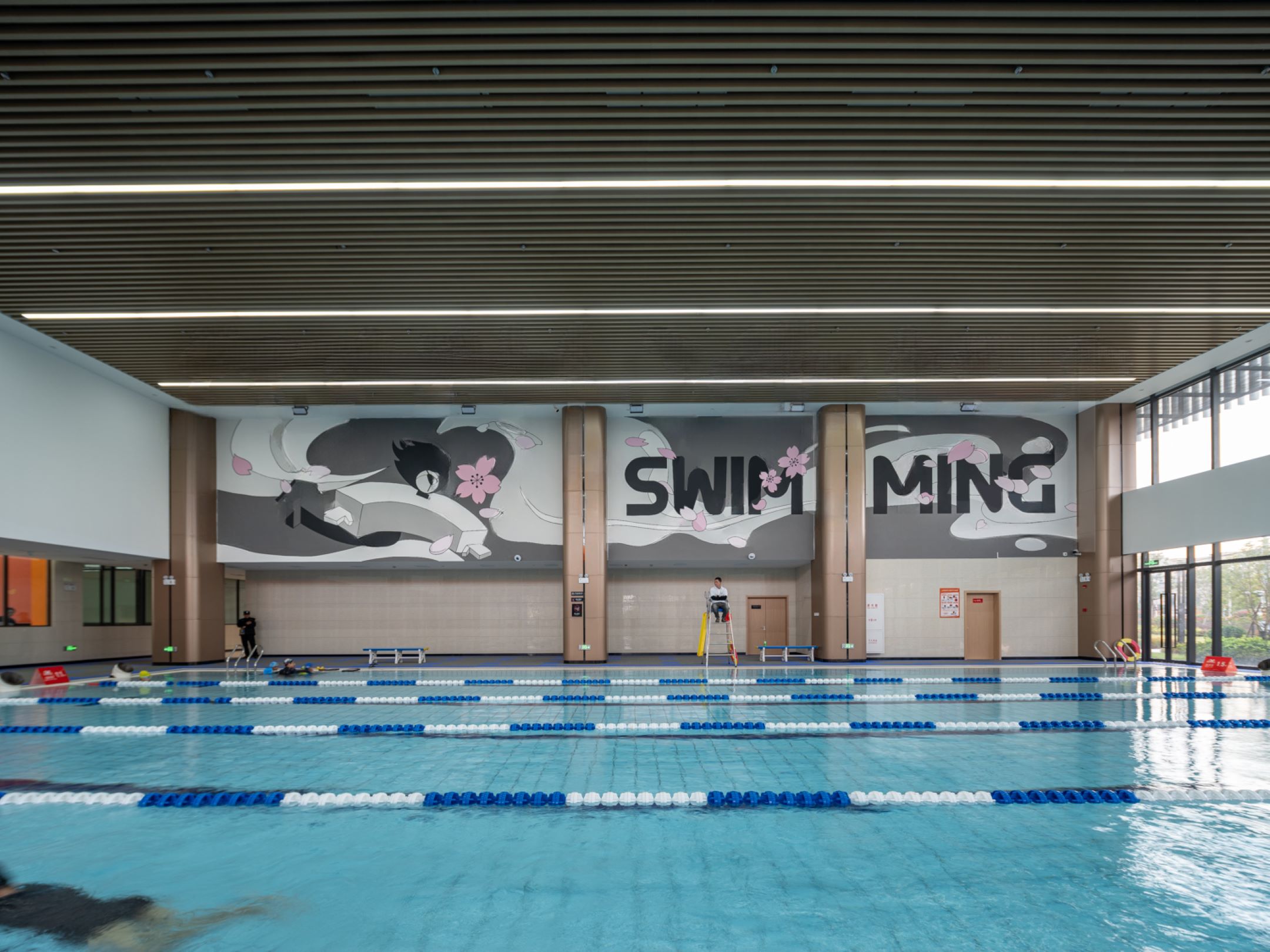
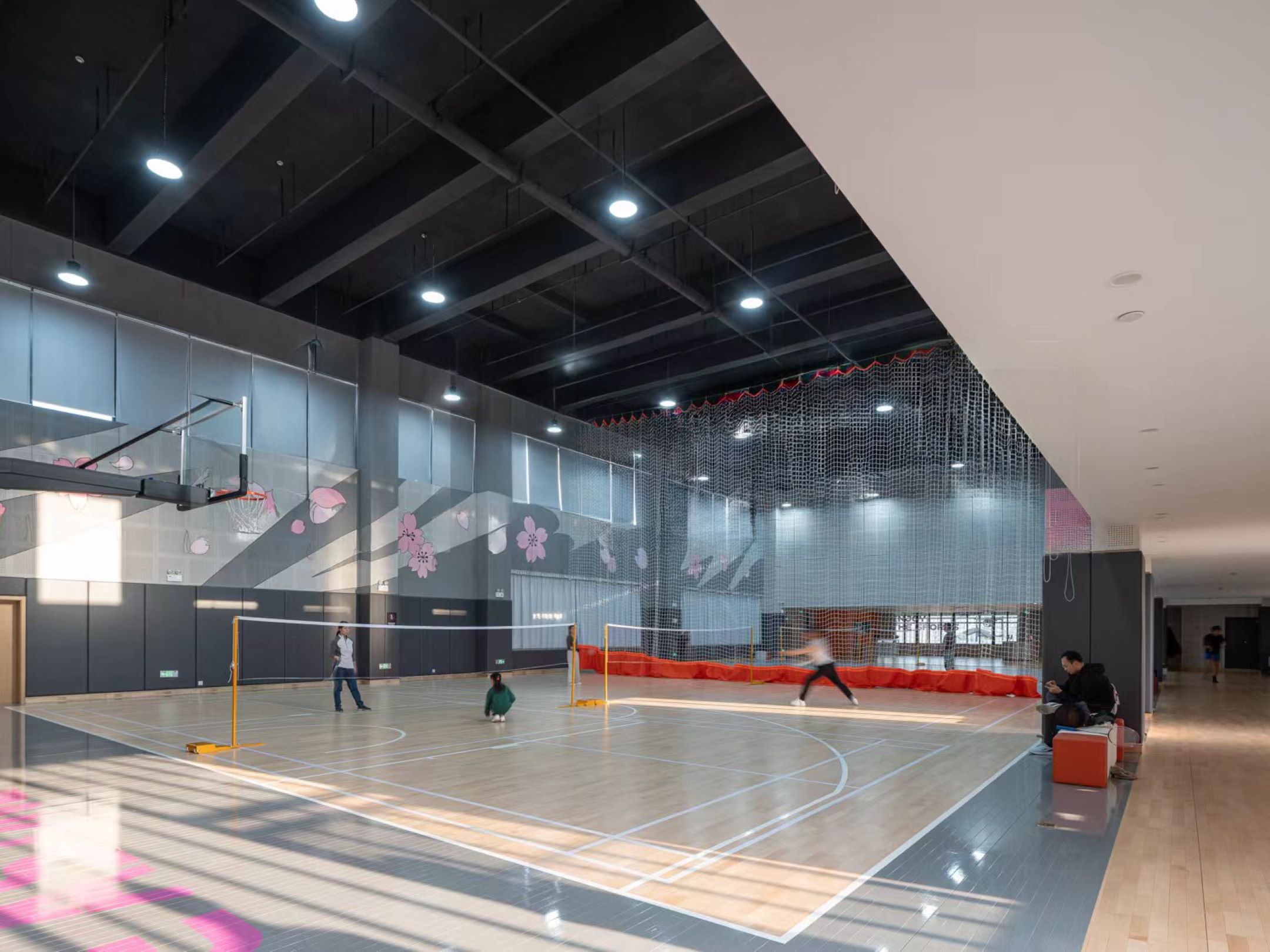
为呈现尺度巨大的观演台阶以及城市观景平台,建筑采用了高度两米的巨大的钢结构桁架来实现12米的悬挑结构。
To present the grand spectator steps and urban viewing platforms, the building employs large steel trusses, each two meters high, to achieve a 12-meter structural cantilever.
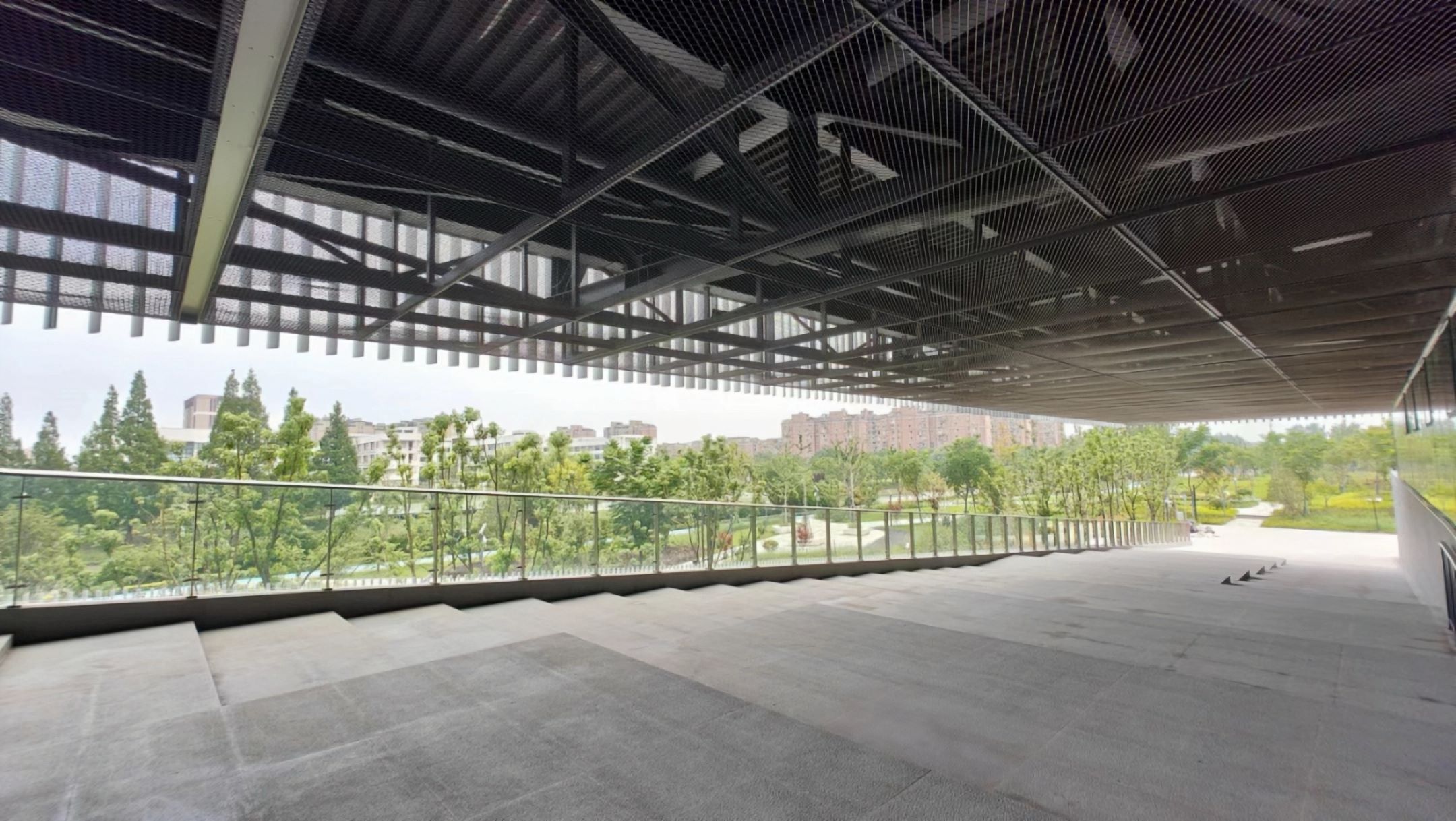
面对这样的结构信息,我们没有按照传统做法选择用漂亮的金属板将结构遮蔽,而是为重塑场地工业生产的场所记忆,采用半透明的金属网,将具有工业美感的钢结构桁架以一种朦胧的姿态呈现出来,似乎在与远处公园里的龙门架形成对望,也是跨度70年的历史印记的对话。
Confronted with this structural feature, designers opted against the traditional method of concealing it with sleek metal panels. Instead, they aimed to recreate the site’s industrial production memories by using semi-transparent metal mesh. This approach presents the aesthetically industrial steel trusses in a subtle manner, echoing the distant park’s gantry cranes and creating a dialogue spanning 70 years of historical impressions.
建筑自身利落的几何线条,也展现出一种当代的工业美学,以几何形式的语言回应工业的历史印记。
The building’s clean geometric lines also showcase a contemporary industrial aesthetic, using geometric language to respond to its industrial heritage.
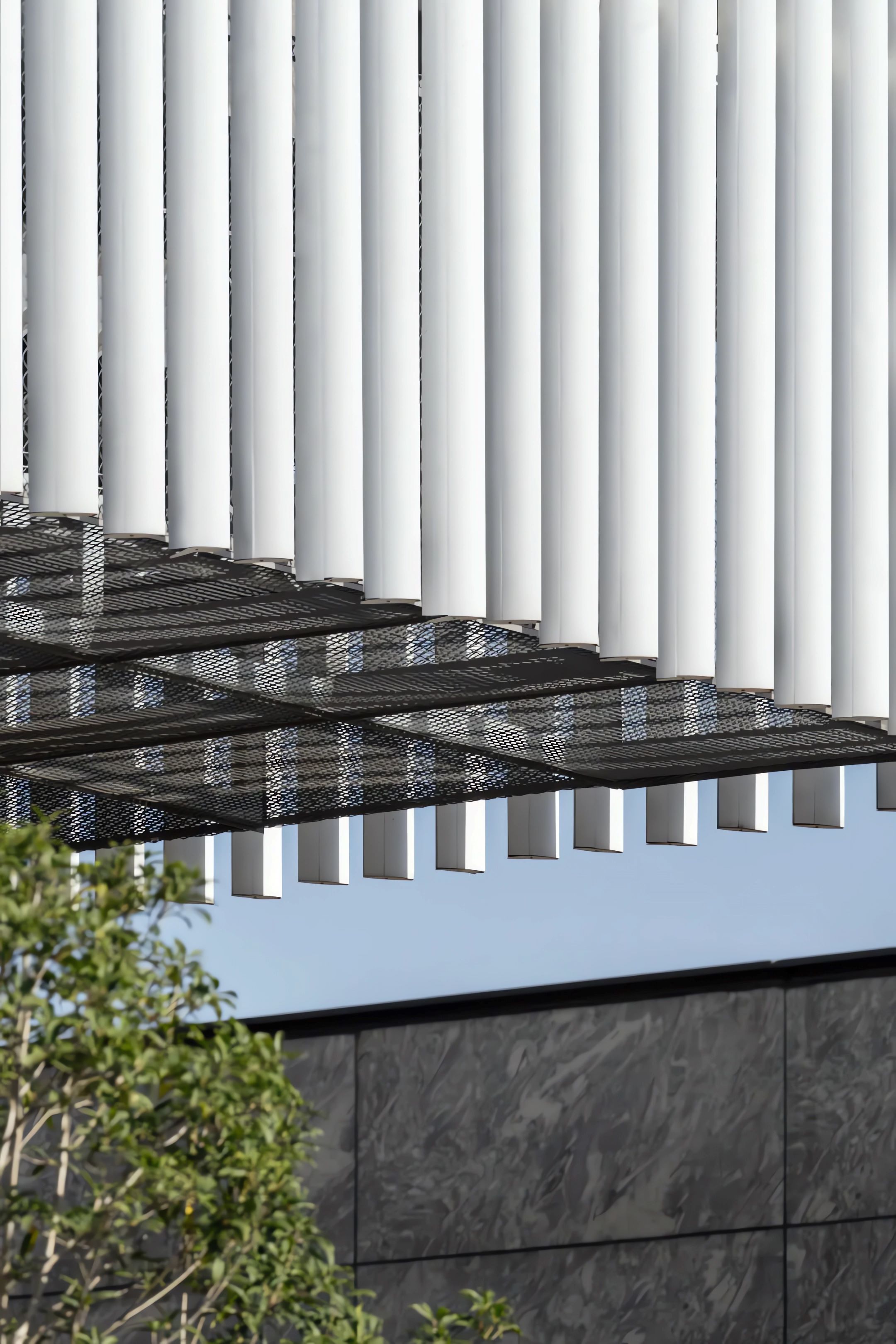

设计图纸 ▽
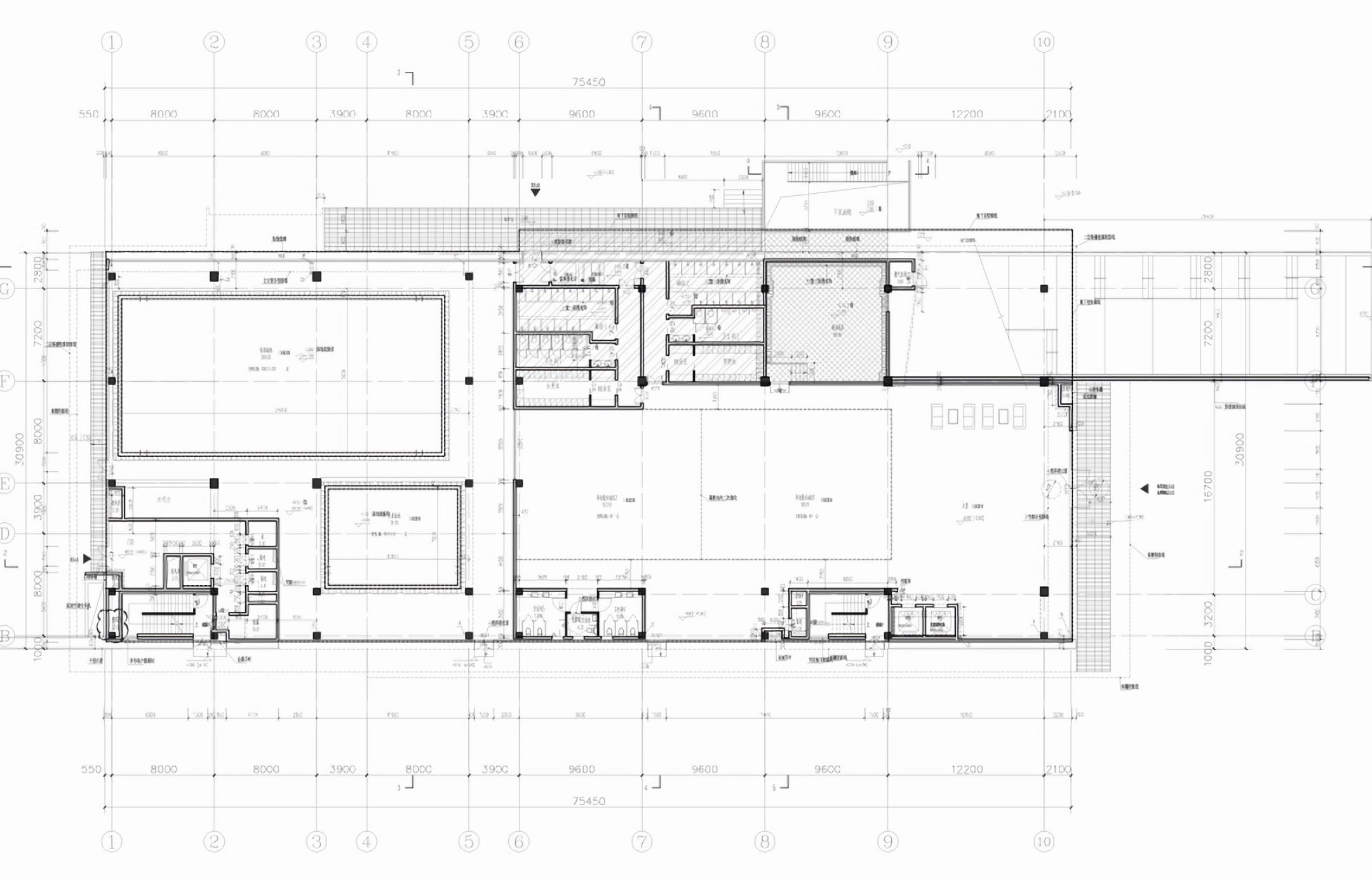
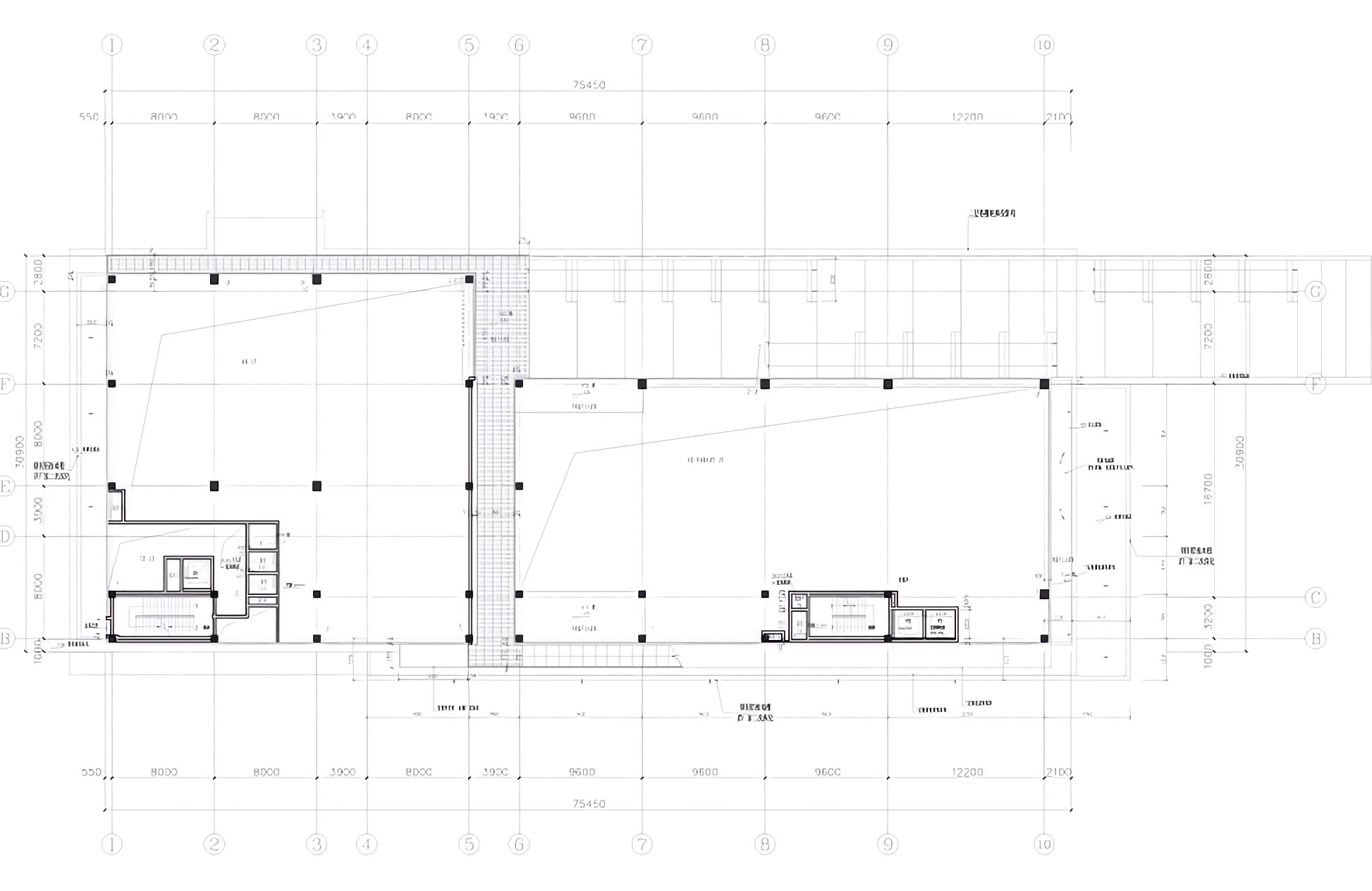
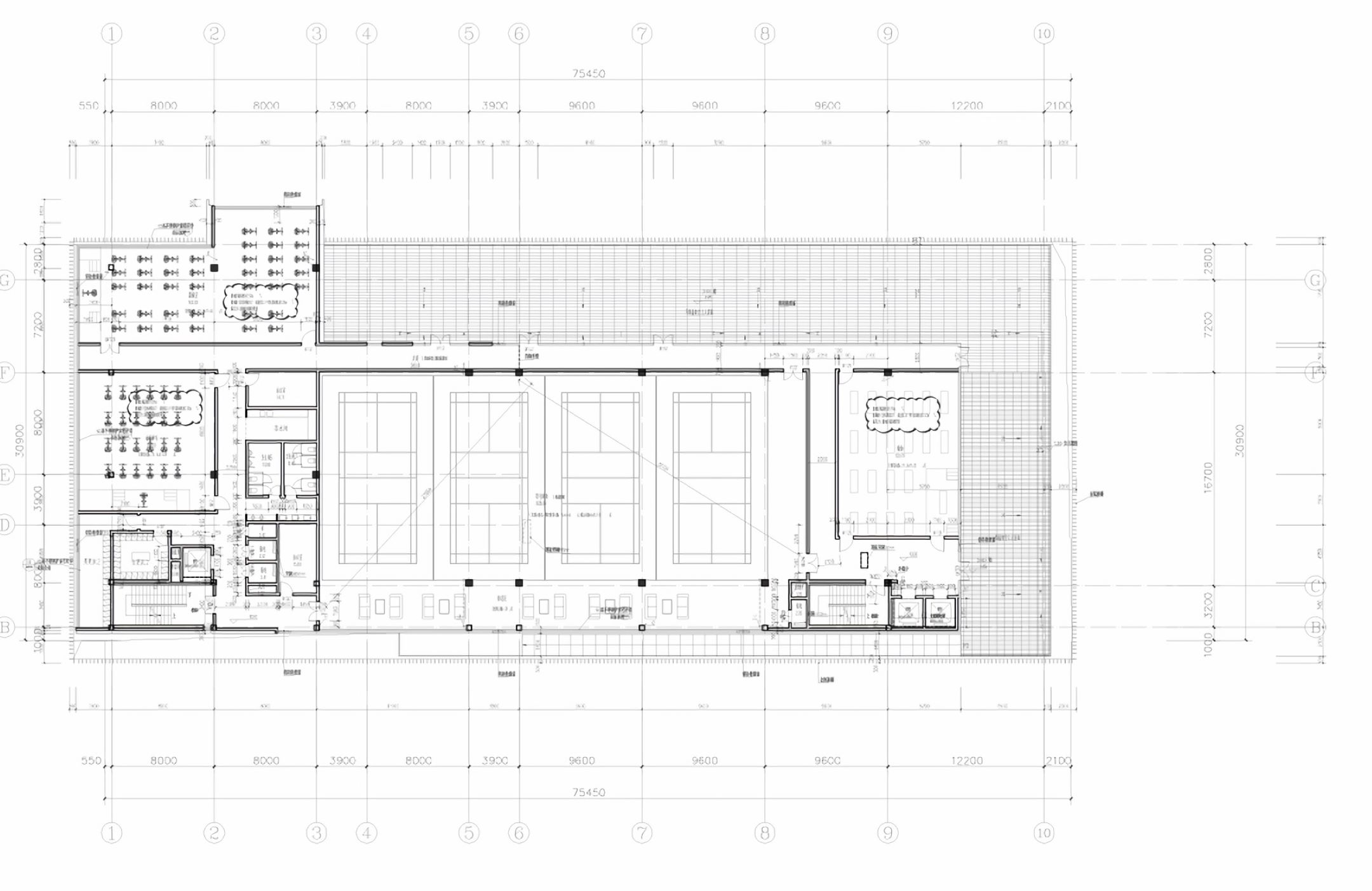
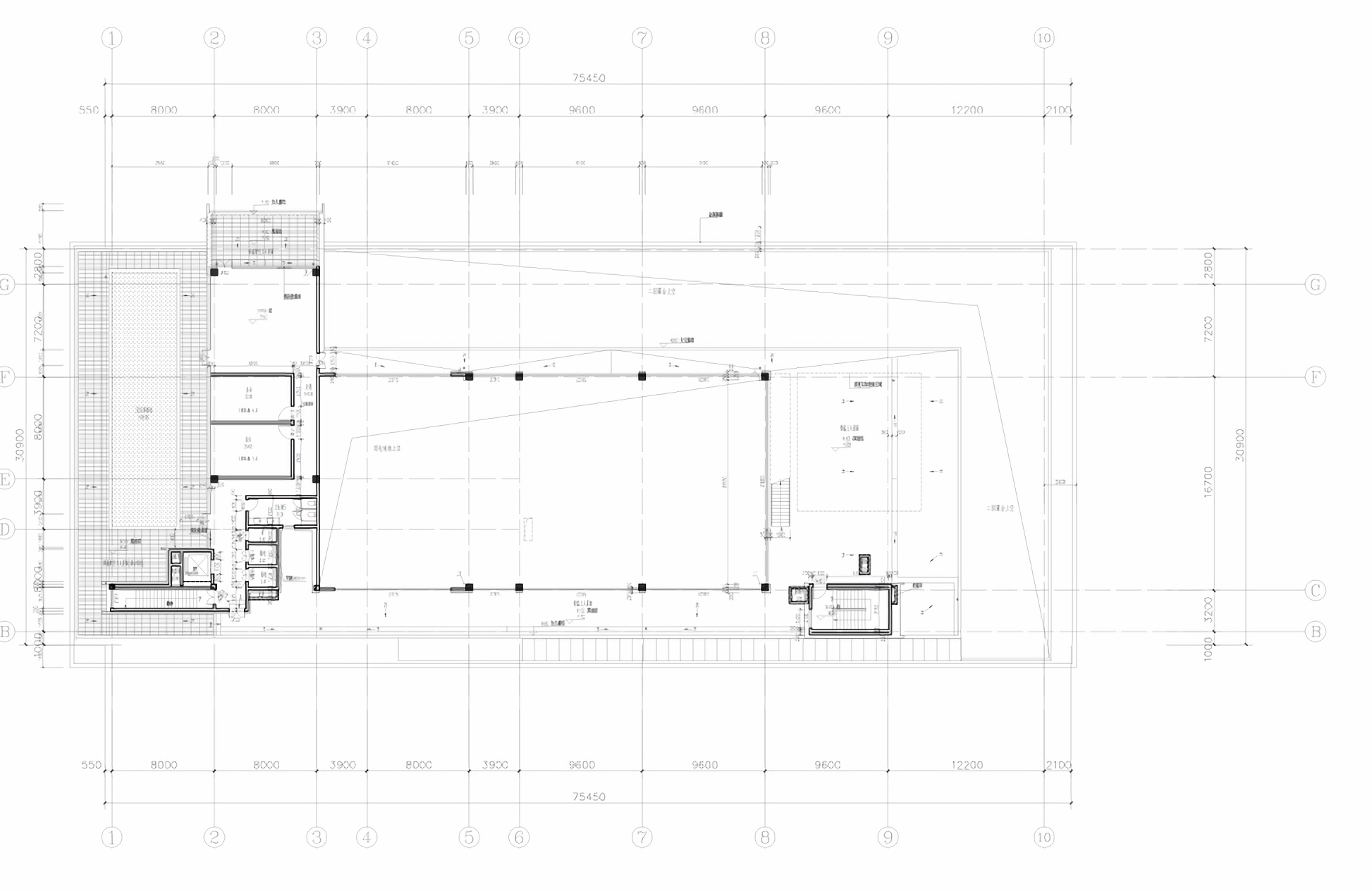
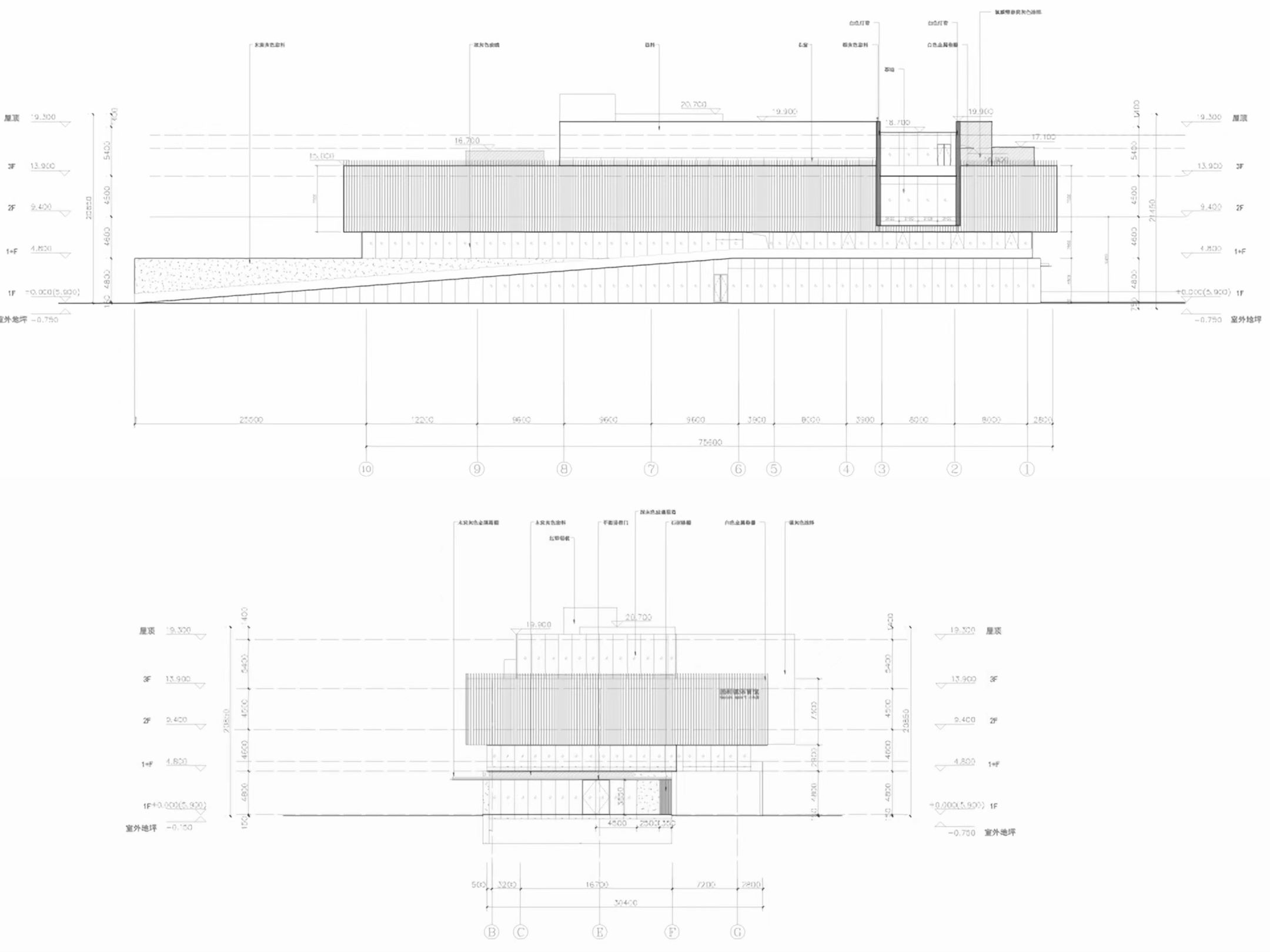
详细信息:
项目名称:上海顾村体育馆
项目类型:建筑
项目地点:中国上海
建成状态:建成
设计时间:2017年6月至2019年9月
建成时间:2023年8月
建筑面积:7000平方米
设计单位:上海日清建筑设计有限公司
主创建筑师:宋照青
设计团队完整名单:
总建筑师:宋照青 蔡兢凯
设计主创:强瑞
后期主管:郭丹
后期团队:吴旻琦
景观设计:中国建筑上海设计研究院
室内设计:中国建筑上海设计研究院
照明设计:中国建筑上海设计研究院
幕墙设计:上海甫合幕墙设计咨询有限公司
材料:石材,铝格栅,金属网
业主:大华集团
摄影师:于曦
版权声明:本文由上海日清建筑设计有限公司授权发布。欢迎转发,禁止以有方编辑版本转载。
投稿邮箱:media@archiposition.com
上一篇:自然原型的延续与重构:王户村村民之家 / 浙江大学建筑设计研究院
下一篇:SOM×杭州临平数智城|入围主创insights